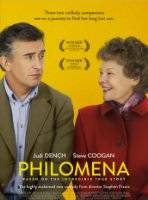Muhammad Ali’s star status was about personality and talent and show biz sense. His historical importance is built on his moral sense, which doesn’t get displayed more clearly and rightly than this:
Category Archives: Critique
Recommended: Ben Fountain, Billy Lynn’s Long Halftime Walk
After finishing Billy Lynn’s Long Halftime Walk: A Novel I read Geoff Dyer’s review in the Sunday Times Book Review of May 18, 2012. Or reread, probably, at least partly. My approach to book reviews is flexible. I read them if I’m interested in the non-fiction subject, even a little.
I read fiction reviews if I like the writer or I like the reviewer, or if the writer or reviewer I don’t know captures me for some reason. References to books and writers I like help. But it is hit or miss.
If I start reading a review, for whatever reason, and think I might read the book, I stop. It isn’t pleasurable to read with a critical voice in your head, no matter whose. Read the book first, read the review later. Same goes for movies.
I’m sure I at least started Dyer’s review of Ben Fountain’s book because I like reading Dyer, and I’m sure I stopped because I thought I would read the book, which I eventually did and have now finished.
All of which is to say that Dyer’s review gets the book, and does it without even mentioning Beyonce’.
What I can tell you is the book is a love story, and like all love stories it’s a wish-fulfillment scenario. The fact that that mostly-dry humping mise en scene intersects with the War in Iraq, Bush 43 giving medals, Fox Television, the Dallas Cowboys, Hillary Swank, Destiny’s Child, a twisted dysfunctional and sweet family, and many vile and some sweet characters, and is written with vivid access to metaphor that captures life in these United States these days, is secondary.
But not unimportant.
Market Basket Fantastic.
I was near Boston yesterday, in the western suburbs, and everyone (I talked to, at least) is talking about the family feud that has disrupted business for DeMoula’s Market Basket supermarkets.
This is a family feud, but it also turns out to be a textbook illustration of the perversity of inadequately progressive tax rates and the rapacious nature of those who don’t work who own rights to the returns from those who do.
I’ve shopped in the original Westford Market Basket many times, and as someone who likes food was mostly impressed by lack of the foodie stuff in the store. But what regular shoppers tell me is that the store was customer friendly. Not only did they have lower prices than all the other groceries, but they also rebated four percent of what you bought. And they stocked local produce (that actually was a reason I shopped there sometimes).
On top of this, it turns out, they also had a generous profit sharing program, excellent wages, a program for paying for college tuition and a pension program it was easy to join and easy to collect on.
Not only did the company produce value for its workers, but it also threw off a ton of money for its shareholders.
I didn’t know about the good benefits or the happy workers, until recently, and often shopped at Hannefords and Stop and Shop when I was visiting the inlaws, because those stores had cooler food (more organic, though not more local). But things have changed.
After years of feuding, the DeMoula cousin who is a financial operative has taken control of the company from the cousin who has been a successful retailer. And business has ground to a halt. This fine story from Slate has more details, but doesn’t really hint at the main issue here.
DeMoula’s family business, started in the shadow of the War to End All Wars (the centenary of which we’re now recognizing), has grown into a business worth more than $3 Billion dollars. Some significant part of that expansion was due to the nice cousin’s investment in worker and customer satisfaction.
These investments cut into the bottom line and shareholder reaping in the short term, and the current dispute seems to stem from the dissatisfaction of those who own shares but do no work and who hate seeing money paid to people who actually labor.
The people I spoke with in the Boston area (including some self-described conservatives) seemed to understand that this was a feud between a grocer who recognized the value (and profitablity) of good wages and reinvestment, and a guy schooled in investment who was looking to squeeze as much cash out of cow as quickly as he could. Ouch!
Obviously there is a value to people investing in the products of other people’s labors, but too often this ends up with rich people using money to extract more money from those who actually make the value. Which not only hurts workers, but also strips away the dynamics of our society. We need workers who buy to expand.
The rapacious policies of Artie S. have radicalized, though I’m not sure they would call it this, a broad swath of suburban Boston. But the bottom line belongs to Artie T. It’s better business in the long term to have a well paid workforce than to force them into penury for immediate riches that are there to be gained.
As a society, unfortunately, we’ve allowed the plutocrats (a minute minority) to define the discussion, rather than look out for our own (and, curiously, society’s) interests.
That’s where we can make change.
Yelp! Top 100 Restaurants in the USA

Now, that’s cool, and the list is an impressive mélange of expensive and much less expensive tastes. For instance, New York’s top restaurant is a vegan food truck called the Cinnamon Snail. Second is the gastronomic playground known as 11 Madison Park. On the whole list I’ve eaten at one restaurant, the Gramercy Tavern, which is one of my favorite restaurants in the city. Well selected, I’d say, but we don’t get out much.
So maybe my lack of familiarity is my fault, but in scanning down the list there are a rather large number from our most populous state, California, which made me wonder if their food is so much superior or if the way Yelp weighted their star ratings (by the number of votes) favored more populous areas.
State By State ranking of the top restaurants in the Yelp 100:
California 48
Hawaii 10
New York 9
Texas 7
Washington 4
Illinois 3
Missouri 3
Arizona, Colorado, Florida, Oregon and Tennessee has two apiece.
I like the list, whenever I get back to Cali maybe it will lead us to some hidden gems, but I have my doubts that the algorithm Yelp used is to be fully trusted.
BOOK: Shirley Jackson, “Hangsaman”
 It gives nothing away to say that Natalie Waite, the young woman at the center of Hangsaman, is tightly wound. The cover of the relatively new Penguin Classics edition of the book features a young woman writing a letter to her Dad, but the letter is spattered with blood.
It gives nothing away to say that Natalie Waite, the young woman at the center of Hangsaman, is tightly wound. The cover of the relatively new Penguin Classics edition of the book features a young woman writing a letter to her Dad, but the letter is spattered with blood.
That illustration reflects the intensity of this story, which starts with Natalie living at home, with her brother and extremely dysfunctional parents. The only problem is that once she escapes them physically, she discovers that they stick with her in her head, and once she pushes them out of her head, she’s surprised and bewitched by the things that take their place.
Everyone knows Shirley Jackson from her powerful story “The Lottery,” but she also wrote the novel that was the basis for the famous movie, The Haunting of Hill House, and the masterful We Have Always Lived in the Castle, a tale of psychological fragility and the corrosive idea that history somehow turns into destiny (and that’s not a good thing).
Hangsaman was written in 1951 and I had never heard of it until I found it on the shelf at the library.
Jackson is a fantastic vivid and nuanced writer, capable of rendering the stream of conscious thoughts of a young woman like Natalie so that they represent her disorientation and naiveté but also give us a sophisticated and nuanced view of her psychological state. Something like being inside and outside the scene at the same time, analyst and analysand simultaneously.
Jackson is interested in the way the psyche interacts with a civilization that is really alien to the desires and prerogatives of the free spirit. In Hangsaman lonely Natalie yearns for connection, but when she finds it she is reminded why she was alone in the first place.
The jacket copy says this story is somewhat based on the tale of a disappeared Bennington student, but the delights and horrors it offers aren’t those of a tawdry paperback true crime story, but rather the exacting expression of a writer who seems to believe that the membrane that separates an individual from the outside world is truly porous, and writes as if it were.
Verizon May Suck A Lot, Or Only A Little Less Than A Lot. But I Think Netflix is the Problem.
This story at arstechnica lays out some ambiguous broadband stats from Netflix about various ISP’s deliverance of our video feeds to our house.
In my house we’ve noticed in recent months that we can rarely watch Netflix, delivered through our first generation Roku, even after I moved the router into the same room (about 20 feet apart).
And that comes after years of perfectly fine service. Somehow the system is getting worse.
At first, the chart in the article suggests that Verizon (and Comcast) are throttling performance, but the evidence for that doesn’t seem to exist (though Verizon’s recent net neutrality victory is grist for the throttling mill, and a warning of what could happen if our internet pipes aren’t protected from pipe-holder taxation.)
What I know for sure is that Netflix relentlessly tries to deliver a HD signal into my house. My HD TV loves that, but my contract with Verizon is for a fairly modest bandwidth (3mb down, 1mb up, the max their system can somewhat reliably deliver). Whenever we watch Netflix, we have to set the program up and then wait either a long or an interminable amount of time for Netflix to figure out that we don’t have the throughput to handle the signal they want us to have. Once we go from HD four dots to two dots, based on their evaluation, we can watch our TV, usually without problem.
But this transition always takes a stupid amount of time. WE DON’T HAVE THE BANDWIDTH FOR HD, we scream, but Netflix can spend scores of minutes trying to pump the HD our way. And does not seem to memorize our settings, nor allow us to set our own (gimme gimme gimme two dots!)
Tonight we waited nearly a half hour (doing other things, too, we’re not hopeless) waiting for Netflix to tamp down our usage rate so we could watch our show, and then quit because it didn’t happen.
Netflix used to tamp down bandwidth rates with great agility. I’ve read articles about how they maximized flexibility, and valued their ability to reduce their bandwidth footprint, but that no longer seems to be the case. I want to blame Verizon for this, since they offer fairly crappy service on my block, but I think the greater problem is that Netflix for some reason no longer values that elastic delivery.
They want to deliver HD even if you’re not capable of receiving it, and that’s screwing up my watching of Season 5 of Breaking Bad. I dislike Verizon, but it seems that Netflix is the one who can fix this problem.
Update: It looks like Netflix agrees the problem isn’t Verizon.
Update (February 22): It looks like Ars Technica now thinks the problem is Verizon, demanding substantial peering payments.
Novel: Tao Lin, “Taipei”
 A lot of people think that in his 2013 novel, Taipei, Tao Lin has written a great novel about contemporary life and love.
A lot of people think that in his 2013 novel, Taipei, Tao Lin has written a great novel about contemporary life and love.
I read his earlier short novel, Richard Yates, last summer, and enjoyed it. He has a style that is hyperselfconscious. His narrator in Taipei, Paul, is a novelist, and is continually aware of what is said, the context in which it was said, what was heard and the context in which it was heard. He evaluates each said thing and every expression and act based on all of it. Paul can be as tiresome as you might imagine.
Paul grew up in the US, but his parents were from Taiwan and have moved back there. They like it when he visits, which he does a couple of times in the novel. But mostly he lives in Williamsburg, Brooklyn, in 2010 or so. He’s interested in meeting girls, he’s recently broken up painfully, and his next few months will be spent on a book tour across America to support his most recent work (not clear whether it is poetry or a novel), and obliterating all sense of memory, so that all he has left is the memory of what happened in the last few moments. A quote from page 75:
Having repeatedly learned from literature, poetry, philosophy, popular culture, his own experiences, most movies he’d seen, especially ones he’d liked, that it was desirable to “live in the present,” “not dwell in the past,” etc., he mostly viewed these new obstacles (note: the long list of drugs he takes regularly) to his memory as friendly and, sometimes, momentarily believing in their viability as a form of Zen, exciting or at least interesting. Whenever he wanted to access his memory (usually to analyze or calmly replay a troubling or pleasant social interaction) and sensed the impasse, which he almost always did, to some degree, or that his memory was currently missing, as was increasingly the case, he would allow himself to stop wanting, with an ease, not unlike dropping a leaf or a stick while outdoors, he hadn’t felt before—and, partly because he’d quickly forget what he’d wanted, with a sensation of loss or worry, only an acknowledgment of a different distribution of consciousness than if he’d focused on assembling and sustaining memory—and passively continue with his ongoing sensory perception of concrete reality.
So, he’s kind of like the hero of Memento, except the obliteration of memory is self-inflicted, a way to escape the self consciousness he’s always felt and which he feels has robbed him in his life experiences.
At the same time, he’s brutally relentless in his self-examination of the moment, something his young girlfriend Erin feels from his ongoing descriptions of what is going on between them, from the perspective of most of the other players, and from himself. Paul is a proxy for Tao Lin, and he’s sometimes charmingly clever and often irritatingly self-involved. He is also very plain spoken and engaging, and the Russian dolls he unboxes page after page are sometimes comic, other times tedious, but his is a third person voice that is as immediate as the first person.
There is also quite a bit of apparent social content in Taipei. The characters are modern consumers of video, internet bandwidth and healthy foods (and guilt-out when they have to eat something that doesn’t meet their standards). Lin seems to be something of a critic of the consumer culture, or the way modern communications have fragmented us, but just as often the electronics are something more positive. The subtle satire is more the reader’s voice using Lin’s observations as evidence. Lin seems more a psychorealist in his intentions than a social critic.
Paul, Erin and their friends take Thompsonian (or Burroughsian) amounts of drugs, all the time, with very little worry about the mechanics of this desire. They call, the drugs arrive, for the most part, or are just there. There is hardly any concern about money, they never wait for the man, the context is not realistic but more like an extended dream of living a quasi-adult life with the emotional immediacy of a third grader. Paul also never talks about the history of writers who preceded him who have built personas or books off of drug use. Given the richness of reference, it is an odd omission.
Taipei is something of a schematic, a drawing board philosophical inquiry into the manner of memory obliteration, existential drug-fueled YouTube creation and love without the ability to express anything soft. Perhaps most curious is a passage in which Paul declares that his favorite novelist is Ann Beattie, and also Tao Lin’s (I subsequently read in an interview with Lin, who also listed Bret Easton Ellis among his favorite favorite writers). Paul’s favorite novel, he says, is Chilly Scenes of Winter. Remembering Beattie’s plainly declarative writing, I return to the Chilly Winter of those young lives trying to connect in another time of social upheaval, which doesn’t feel at all like Taipei on a superficial level, but once you get past the writer’s style makes them feel quite similar indeed.
Taipei is far from a great novel, but it is ambitious and idiosyncratic and often good fun. I like that sort of thing.
Link: Addicted To Wealth
A young man who earned his way into insider status in the financial industry, compares the compulsion to acquiring money as an analog to other addictions, an attempt to compensate for or avoid some other deeper pain inside.
It’s a cool story, but I doubt it is universally true. But there is something else he realized as his eyes opened that is certainly true:
I’d always looked enviously at the people who earned more than I did; now, for the first time, I was embarrassed for them, and for me. I made in a single year more than my mom made her whole life. I knew that wasn’t fair; that wasn’t right. Yes, I was sharp, good with numbers. I had marketable talents. But in the end I didn’t really do anything. I was a derivatives trader, and it occurred to me the world would hardly change at all if credit derivatives ceased to exist. Not so nurse practitioners. What had seemed normal now seemed deeply distorted.
We need banks and investors, as a way to pay for real things, but the notion that credit “products” like credit default swaps are anything more than a way for the sharps to skim their percentage off the world economy is a sham.
I’m not qualified to know where to draw the line here, but I’m sure that one great injustice we can all line up behind is the fact that income derived from this mostly-worthless churning of money should be taxed at the same rate as income that is earned by labor. At least. It should certainly not be taxed at a lower rate, as it is now.
Movies: Philomena, starring Steve Coogan and Judi Dench
 Coogan is the executive producer, co-star and co-writer of this adaptation of a true story. I had no expectations going in, but very much enjoyed Tristam Shandy and The Trip, both of which starred Coogan. Stephen Frears has made some excellent movies in his now long career. And Judi Dench is always powerful and charming.
Coogan is the executive producer, co-star and co-writer of this adaptation of a true story. I had no expectations going in, but very much enjoyed Tristam Shandy and The Trip, both of which starred Coogan. Stephen Frears has made some excellent movies in his now long career. And Judi Dench is always powerful and charming.
The odd bit here, the story of an older woman’s search for the son she bore in a nunnery out of wedlock, who was given up for adoption 50 years earlier against her wishes, is Coogan’s decision to frame the story as a mashup of an odd couple road movie (think Rain Man) and an expose of the sordid workings of the Catholic Church (think The Magdalene Sisters). As such we bounce from fish out of water comedy to fervid religious angst, all of it nicely acted and perfectly presentable, all of it without any frisson at all until the actual facts of the case start coming a little clearer.
Then, it is our imaginations that are required to connect the dots. The movie does very little heavy lifting, it seems content to rest on the formidable talents of its stars, who pull if off if you don’t ask too much or think about it too hard.
Astronomy Wiz Falls Down a Wormhole.
I enjoy Phil Plait’s Bad Astronomy posts that I read on Slate. I’m sure his Bad Astronomy blog is well worth visiting, but I hadn’t until tonight. And I have to say, I love the handmade feel of the site. And I love his enthusiasm for the deep space photos and the climate change fight, and even mathematics.
Which is where this story comes from. Yesterday Phil wrote a story about a mathematical equation that defied description. It’s kind of like the idea, If God can do anything, can he make a rock he can’t pick up? In this case the question was, what is the sum of 1+2+3+4+5….
Those ellipses mean that the sequence goes on forever. It’s a headpounder. If the sequence of numbers is infinite, it seems like the sum of this infinite sequence must be infinite, but Phil told a story in which the sum was -1/12th.
And he posted a video. In which some giggly physicists, highly respected apparently, demonstrate by a series of algebraic transpositions (I’m certainly not using the right math lingo here) that the infinite (which Phil identifies as divergent) series has that value of -1/12th.
I watched the video in the original post and I liked the kookiness, and I loved the way math was a form of play (not something I have any familiarity with), but I didn’t understand how you could just add and subtract these infinite series and make any sense. It all seemed somewhat arbitrary. Despite Phil’s hype of this explanation as mindblowing, my mind was unblown. Good for me, it turns out.
According to Phil’s mea culpa today, you really can’t add and subtract infinite series. Phil got gulled into a bit of pop-math hocus pocus, I guess. He doesn’t call out the guys in the video. But his elaboration on the original post is good-writer magic, and explains why his blog is popular.
I think the bigger issue here is our need to question what we see and hear. Phil Plait is a thoughtful and honest writer with a lot of expertise. He notes that that expertise is not mathematical, but he does love the numbers, so he writes about them. That doesn’t mean he or his source is always right. We need to be skeptical about all claims, especially the mindblowing ones.
And welcome when someone who made a mistake admits it. As Phil did.

